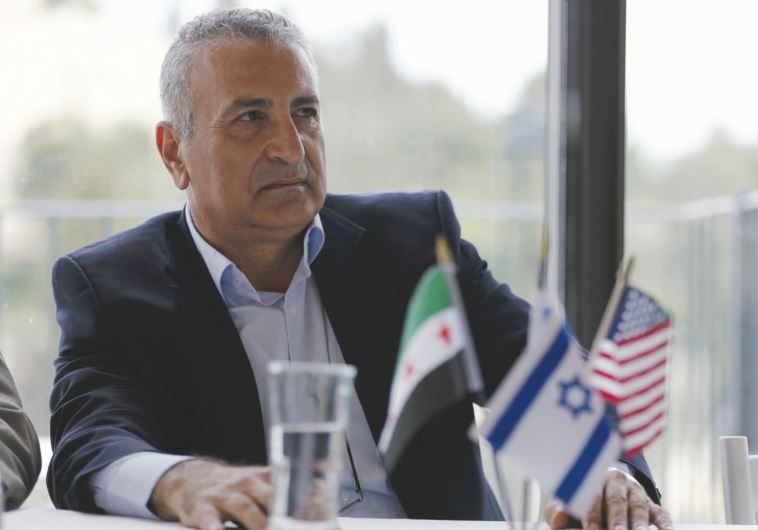Syrian opposition leader pushes for buffer zone near Israel border
Israel can provide humanitarian supplies, help create field hospitals, says Kamal al-Labwani in Jerusalem visit.
 SYRIAN OPPOSITION LEADER Kamal al-Labwani attends a news conference in Jerusalem yesterdayUpdated:
SYRIAN OPPOSITION LEADER Kamal al-Labwani attends a news conference in Jerusalem yesterdayUpdated: